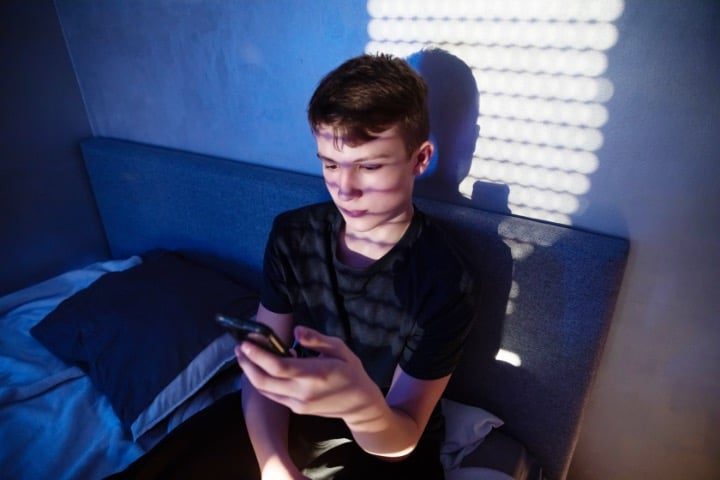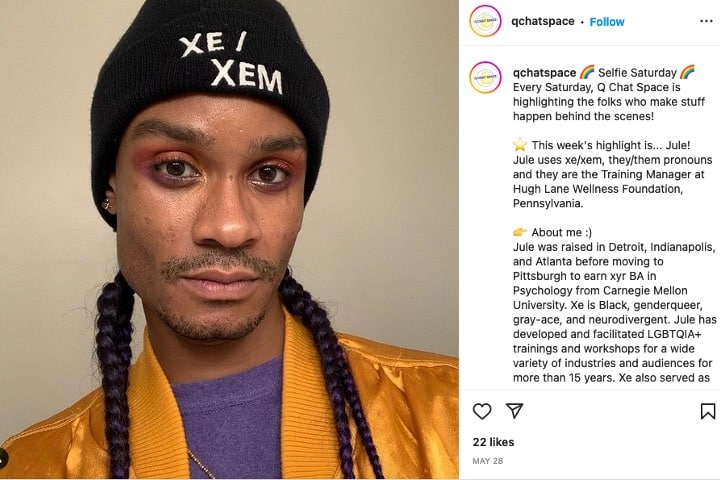
The U.S. Centers for Disease Control and Prevention (CDC) is promoting to youth an online platform where they can chat about sexual perversions, sex-change operations, the occult, and activism. The resource is specifically designed to be quickly hidden out of parental sight while being used. Run in part by Planned Parenthood, it also allows for the mixing of LGBTQ adults and teenagers.
Called Q Chat Space and described as “a digital LGBTQ+ center where teens join live-chat, professionally facilitated, online support groups,” the platform is advertised on the CDC’s LGBT Health Youth Resources page. The CDC also provides an option for Spanish-speaking troubled children to use the portal in Spanish.
The platform is made up of “online discussion groups for LGBTQ+ and questioning teens ages 13 to 19,” according to the Q Chat Space website. It reads,
Find and give support, have fun, connect around shared interests and get good information. Chat with like-minded peers in live chats designed for you & by you, facilitated by folks who care.
Who are the facilitators, “the folks who care?”
The website says that all online conversations “are facilitated by experienced staff who work at LGBTQ+ centers around the country,” seven of which are listed on the website. According to Q Chat’s Instagram page, one of the “professionals” is Jule, who uses “xe/xem,” and “they/them” pronouns. He’s “Black, genderqueer, gray-ace, and neurodivergent.” Jule has such career “achievements” as development and facilitation of “LGBTQIA+ trainings and workshops for a wide variety of industries and audiences for more than 15 years.”

There’s also Coley, who uses “they/xe” pronouns and is a “Black nonbinary queer asexual 4th generation Pittsburgher (PA).”
Q Chat Space is described as a product of the collaboration of PFLAG, “the largest organization for lesbian, gay, bisexual, transgender, and queer (LGBTQ+) people, their parents and families, and allies”; CenterLink: The Community of LGBT Centers; and Planned Parenthood Federation of America.
When teens apply to join the platform, they are asked a number of questions regarding their race, gender, and mental health. The application asks how often they feel depressed or hopeless, what their “sexual/romantic” orientation is, how they feel about their sexual identity, and if they feel supported.
Q Chat hosts conversations on a number of different mature and sexual topics, including “Gender Affirmation Surgeries” (aka genital mutilation), “Sex Ed Night,” “Sex and Relationships Q&A,” “Drag Culture 101,” “Having Multiple Genders” (intended for “Bi/Pan Youth”), and engaging in oral and anal sex.
One of the topics on “sex education,” entitled “Binge drinking,” includes discussions on how to “safely” consume alcohol. Other topics feature discussions on how to use condoms, oral contraceptives, ultrauterine devices, pre-exposure prophylaxis against HIV, etc.
Teens of color are offered the opportunity to exchange thoughts and ideas on “queer youth activism.”
Many chats are dedicated to mysticism, including “Astrology Chat,” “Queering Astrology,” “Self Discovery in Astrology,” and “vibes + auras.” One chat announcement is titled “Queering Tarot,” a reference to tarot cards commonly used in various occult practices.
The sexually and politically charged material is intermixed with content that appeals to younger participants, such as conversations on comics, video games, Pokemon, Super Mario, cat memes, and Star Wars.
Some chats are dedicated to the issues of relationships between gender-confused and “gay” teens and their families. A chat topic entitled “Finding Chosen Family” was led by the president of PFLAG Pasadena, Aiden Aizumi, in March. Last month, participants discussed how they are “Coping with Challenging Family Members.”
The participants are also encouraged to chat about queer fashion, hair styles, and makeup, and other topics include art, pop culture, TV shows, culinary, queer books and poetry, and the history of the LGBTQ movement.
The rules, however, advise users to think twice before making a joke, because humor can be offensive, especially when it comes to sexually troubled and confused teenagers. “Be careful with humor. Even if you think it’s obvious that you are joking, it can be hard to tell. If it’s meant to be funny, make that clear by adding ‘lol’ or ‘jk’,” says the page in regard to how to make the chat a “safe space.”
The CDC states that “some LGBT youth are more likely than their heterosexual peers to experience negative health and life outcomes.” That is why “It is critical for the parents, guardians, and other family members of LGBT youth to have access” to the resources such as Q Chat “to ensure their LGBT children are protected and supported.”
But parents and caregivers could experience trouble supervising their child’s online activity on Q Chat, since the platform includes features to evade unwelcome parental oversight.
For example, the chat room offers two options for text reminders of upcoming chats — “discreet” and “detailed.” Detailed reminders include a “Q Chat Space” tag and other identifying information. Discreet reminders, however obscure the name of the chat. They “are private, they do not include ‘Q Chat Space’ or the name of the chat,” the platform details.
Then, at the bottom of the Q Chat Space website, there is a green bar with a button reading “Click/tap here for a quick escape…” accompanied by a picture of a figure running toward an exit door. Clicking on the button changes the screen to the Google homepage.
Finally, one of the rules of the chat is to “Keep confidentiality” and agree that “what’s shared here, stays here.”
A recently published academic article posted on the National Library of Medicine website lauded Q Chat as a “safe space” for troubled teens to discuss topics related to sex, gender identity, and relationships in private. “The platform’s chat-based nature likely helps youth avoid concerns about family members accidentally overhearing their conversations in the same way they might if they were talking to friends,” note the authors.




